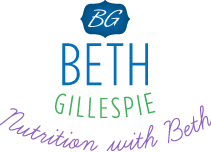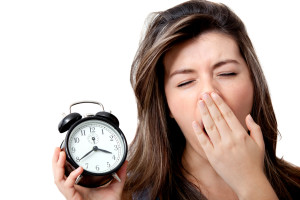A couple of weeks ago, I participated in a three day women’s retreat at Mayacamas Ranch in Calistoga, hosted by Julie Mikos-Houlihan at The Healing Farm. I went with no expectations and decided to be surprised by what I learned and experienced over the course of the retreat. At the end of the long weekend, I learned that what I needed most that weekend was community with 30 beautiful women who were all there to learn, heal, and figure out their paths moving forward. Surprisingly, I did not journal once and only read my book for about ten minutes each evening.
What surprised me most, though, was a moment during Dr. Amy Nett’s lecture on balancing female hormones. There were so many questions on supplements to help with sleep and anxiety. This prompted Dr. Nett to ask how many women in the room actually slept well. Only five of thirty women raised their hands! Wow, this is an epidemic, I thought. One woman I talked to said that she had given up and just accepted that she was sleep deprived every day.
If you don’t sleep well, be assured that there is help! Often it is a minor tweak that needs to happen and sometimes it is necessary to look at more aggressive supplementation or hormone replacement therapy for a designated period of time. Believe me, as a woman that struggles with sleep, I have gone through rough patches. But I keep on learning and adjusting and trying something different and my sleep improves!
The topic of sleep is vast and there are hundreds of recommendations to improve sleep. Here are five tips that I have found most useful over the last several years as a woman in my late 40’s! A good place to start if you are wide eyed and anxious in the middle of the night!
- Take stock of how much caffeine you are drinking and when you are drinking it. Keep caffeine to a minimum and stay away from it in the afternoon and evening. If you are a slow metabolizer of caffeine and find it makes you jittery, this is especially important. You may even find that coffee or tea in the morning affects your night time sleep. About five years ago I was drinking a lightly steeped white tea in the afternoon. The caffeine content was low, so I did not correlate it with my inability to fall asleep. When I removed it from my afternoon routine, I fell asleep within five to ten minutes of hitting the pillow! I replaced it with a decaffeinated tea and found I did not need the caffeine in the afternoon anyway!
- Several years ago, one of my doctors “prescribed” reading a novel (the old fashioned paper kind) before going to sleep. This forced me to shut down my electronics at least thirty minutes before going to sleep, to allow for reading time. Wow, what a difference this has made for me…when I follow the prescription! My sleep is restless when I shut down right before going to bed. It is peaceful and more deep when I read for awhile right before bed. All that blue light from our laptops, phones, etc. raises our hormone cortisol which is supposed to be going down at night…not up! If reading novels is not your thing, consider journaling in a notebook, coloring therapy, or another fun activity that does not involve your laptop.
- What you eat during the day and especially the evening affects your sleep. If you are eating a big dinner an hour before going to bed, you are still going to be digesting when you are trying to go to sleep. Eating too many processed carbs or sugar at night will also affect your sleep. Most likely, you will wake up at 2:00 or 3:00 am in the morning and feel alert. Your blood sugar has likely dropped too low after a big processed carbohydrate or sugar spike and it has signaled your brain to release adrenaline. On the other side, eating too low of a carbohydrate diet and not getting any healthy carbs in the evening can lead to low serotonin levels in some women, which then negatively impacts sleep since you need serotonin to make melatonin, your sleep hormone! Experiment with what you eat in the evening to see what works best for you. Substituting 1/2 sweet potato for processed carbs like pasta or a sugary night time snack along with some fat like 1 TB olive oil or coconut oil might just do the trick! P.S. Although I love dark chocolate, eating even one square in the evening can disrupt my sleep. And I have also heard this from many other women!
- If you do wake up in the middle of the night, try deep belly breathing and focus on all that you are grateful for. Deep belly breathing helps to relax you and being in a state of gratitude dispels worry and fear of not getting enough sleep. I love that science has proven all this now…we just have to remember to practice it!
- Start with the supplement magnesium to help you sleep. Magnesium is a mineral that plays a role in over 300 enzymatic reactions in our body! Stress depletes magnesium, yet the more stressed we are, the more magnesium we need! Magnesium is found in plant foods, but most of us do not get enough through diet due to deficient minerals in our soil and our lifestyles. I suggest starting with 300 mg Magnesium Citrate or Magnesium Malate before bed and increasing to 450 mg if you need to. I cannot tell you how many women have reported sleeping soundly with just the addition of a magnesium supplement!
If you are still having problems sleeping through the night after trying these five tips, please contact me to set up a complementary strategy session to discuss what we can do to help you sleep peacefully again!


